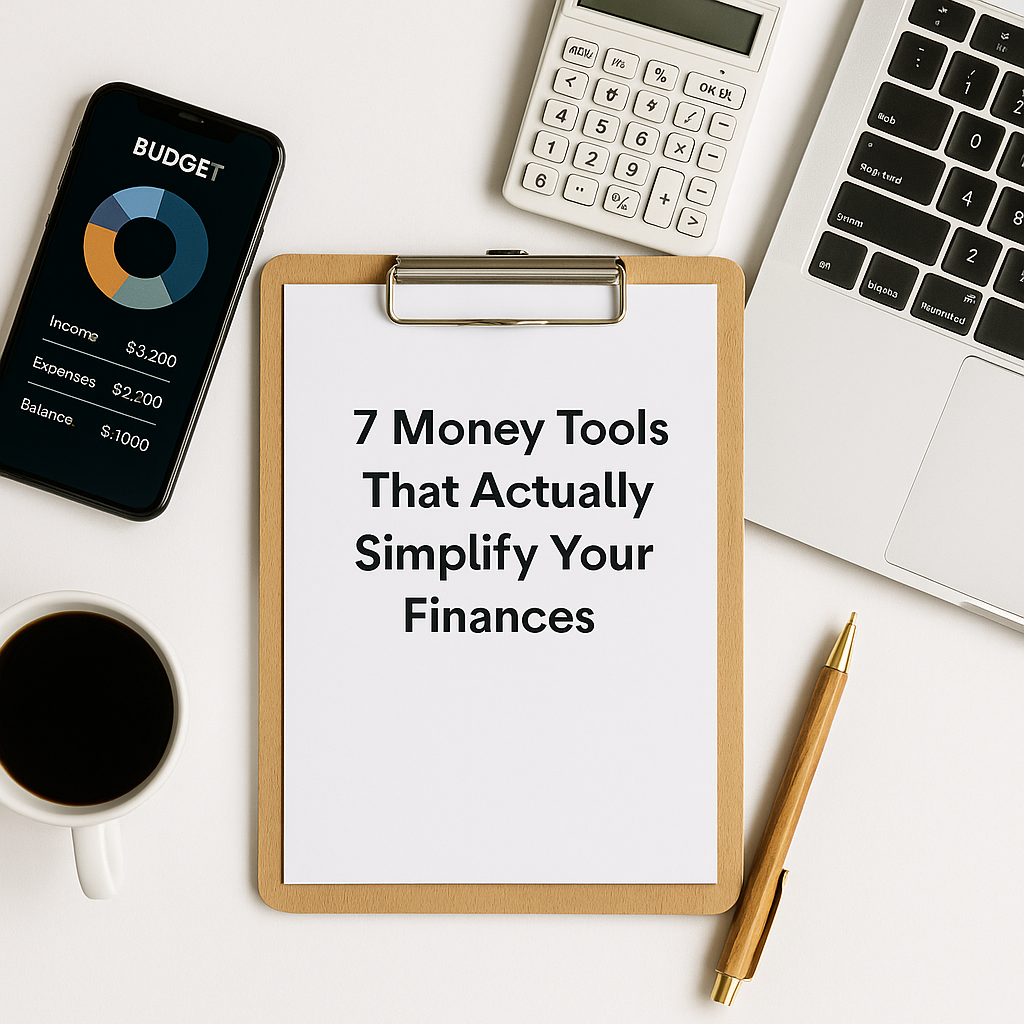Introduction
I’m not someone who uses a dozen apps to manage money. In fact, my system is intentionally simple.
Over time, though, I’ve tested and explored different tools — not to complicate things, but to find what genuinely makes financial clarity easier.
Some didn’t stick. Others felt like more work than they were worth. However, a few stood out — and depending on what you’re trying to solve, one of these might be exactly what you need.
So instead of recommending everything I’ve ever tried, here are the tools I trust most — grouped by what they’re best at.
1. What I Personally Use Weekly
Notion (with a custom finance tracker)
To begin with, I use a simple weekly tracker in Notion to see what came in, what went out, and what shifted. That’s it. I check in once a week — usually on Sundays — and close it when I’m done.
Before this, I tried at least five different apps. While a few had potential, none felt as focused. Eventually, this system gave me what I needed: one space, one rhythm.
Best for: Clear weekly overview, low pressure, high customization
2. Best All-in-One Dashboard
Monarch Money
If you want everything in one place — income, expenses, goals, and net worth — Monarch makes it possible without overwhelm. In addition, it’s beautifully designed and intuitive to use.
Best for: Visual thinkers, families, and anyone who wants a full picture
3. Best for Spreadsheet Lovers
Tiller Money (Google Sheets Integration)
On the other hand, if you like spreadsheets, Tiller connects your bank accounts to Google Sheets and updates everything automatically. This way, you get hands-on control without manual entry.
Best for: Spreadsheet users who want full control with less effort
4. Best Savings Tracker with Motivation
Qapital
Qapital takes saving and makes it visual and low effort. For instance, you can save every time you skip takeout, round up purchases, or automate based on your habits. It’s small but powerful.
Best for: Building savings without pressure or guilt
5. Best Budgeting App for Beginners
You Need a Budget (YNAB)
YNAB focuses on giving every dollar a job. As a result, it helps you stop living paycheck to paycheck — even if you’re already doing okay. It’s more of a system than just an app.
Best for: Budgeters who want structure and behavior change
6. Best for Net Worth Tracking
Empower (formerly Personal Capital)
Empower connects all your accounts and gives you a big-picture view — including investments and retirement. Consequently, it’s a great way to track your financial growth over time.
Best for: Investors, long-term thinkers, and retirement planning
7. Best Free Manual Option
Google Sheets (DIY Template)
If you prefer simplicity and control, Google Sheets still works. In fact, before using Notion, I tracked everything in a single tab. It doesn’t automate, but it keeps things personal.
Best for: Simplicity, no logins, full customization
Final Thoughts
To be clear, you don’t need all seven tools. In most cases, starting with one that fits your current goal is more powerful than trying everything at once.
If you want to see your spending more clearly, build a habit, or track progress without pressure — the right tool should feel like a guide, not another task.
These are tools I’ve tested, trusted, and revisited. Some I use now. Others I recommend because I’ve seen how well they work for different people.
At the end of the day, a good tool should reduce noise, not add more of it.
